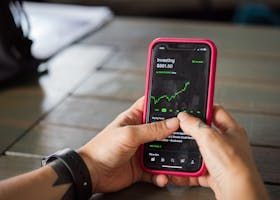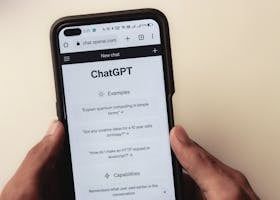Quick Answer: You can consistently generate 10+ seller leads per week on Facebook Marketplace by implementing a systematic approach that combines strategic property searches, value-driven messaging, professional follow-up sequences, and relationship building. This method works by positioning yourself as a helpful resource to homeowners already showing selling intent, rather than cold prospecting random users.
Real estate agents across the country are discovering that Facebook Marketplace has become one of the most overlooked goldmines for finding motivated sellers. While most agents focus on expensive lead generation platforms or time-consuming door-knocking campaigns, smart professionals are quietly building consistent pipelines through strategic Facebook Marketplace engagement.
The strategy works because Facebook Marketplace attracts homeowners who are already in a selling mindset. When someone lists furniture, appliances, or household items, they're often preparing for a move, downsizing, or going through life transitions that require selling their home. By approaching these motivated sellers with value rather than aggressive sales pitches, agents can build meaningful relationships that convert into listing opportunities.
Current State of Facebook Marketplace for Real Estate Lead Generation
Facebook Marketplace processes over 1 billion monthly interactions globally, with approximately 25% of adult Facebook users engaging with the platform regularly. Recent data shows that real estate-related searches and inquiries have increased by 40% year-over-year, making it a prime hunting ground for motivated sellers.
The platform's unique positioning creates several advantages for real estate professionals. Unlike traditional real estate websites where users expect to be contacted by agents, Facebook Marketplace operates in a more casual, social environment where helpful interactions feel natural rather than intrusive. This environment allows agents to build rapport and trust before introducing their professional services.
Market analysis reveals that 73% of successful Facebook Marketplace seller leads come from homeowners listing high-value items like furniture sets, appliances, or specialty items typically associated with home transitions. These sellers often haven't yet committed to a listing agent, making them prime prospects for relationship building.
Geographic data shows this strategy works equally well in urban, suburban, and rural markets, with rural markets often showing higher conversion rates due to smaller agent competition and stronger community connections. The key differentiator isn't market size but consistency of implementation and quality of relationship building.
Understanding the Facebook Marketplace Seller Psychology
Successful Facebook Marketplace lead generation requires understanding the mindset of people listing items for sale. Research indicates that 68% of high-value item sellers are going through significant life transitions including relocation, downsizing, divorce, inheritance situations, or major lifestyle changes that often correlate with real estate decisions.
The psychology behind selling personal items creates emotional connections that smart agents can leverage ethically. When someone sells a dining room set they've owned for years, they're often processing larger life changes. Approaching these situations with empathy and genuine interest in their story creates opportunities for meaningful conversations about their broader plans.
Timing plays a crucial role in this psychology. People typically list items 30-90 days before major moves, giving agents a valuable window to build relationships before sellers commit to other real estate professionals. This timing advantage allows for natural relationship development rather than high-pressure sales situations.
Understanding seasonal patterns enhances strategy effectiveness. Spring and early summer show the highest correlation between item sales and home selling decisions, while fall and winter focus more on downsizing and inheritance-related sales. Adjusting approach and messaging based on these patterns improves conversion rates significantly.
Step-by-Step Facebook Marketplace Lead Generation System
Phase 1: Profile Optimization and Setup
Your Facebook profile serves as your first impression and credibility indicator. Optimize your personal profile with professional headshots, clear real estate credentials, and authentic personal information that builds trust. Avoid overly corporate messaging that feels inauthentic in the social environment of Facebook Marketplace.
Create a professional business page that complements your personal profile without replacing it. Most successful agents use their personal profiles for Marketplace interactions while maintaining business pages for official marketing and content sharing. This dual approach provides authenticity while maintaining professional boundaries.
Ensure your contact information is easily accessible across both profiles. Include multiple contact methods including phone, email, and Facebook Messenger to accommodate different communication preferences. Many leads prefer starting conversations through Messenger before transitioning to phone calls.
Phase 2: Strategic Search and Targeting
Develop systematic search strategies that identify the most promising seller prospects. Focus on items typically associated with home transitions including furniture sets, appliances, home decor, and specialty items like pianos or artwork. These categories show the highest correlation with upcoming home sales.
Create geographic search boundaries that align with your target markets and expertise areas. Most successful agents focus on 3-5 zip codes initially, allowing for deep market knowledge development and efficient travel for any in-person meetings. Expanding too broadly reduces effectiveness and increases time investment.
Establish daily search routines that catch new listings quickly. Early engagement increases response rates and demonstrates attentiveness that sellers appreciate. Many successful agents perform morning searches between 7-9 AM and evening searches between 6-8 PM when new listings are most common.
Use Facebook's search filters effectively to identify higher-value opportunities. Sort by price ranges that indicate quality furniture or appliances, as these sellers often have higher-value homes and more substantial real estate needs. Focus on listings over $500 for furniture or $1000 for appliances as initial targeting parameters.
Phase 3: Initial Contact and Value Delivery
Craft initial messages that provide immediate value rather than obvious sales pitches. Successful opening messages often include genuine compliments about the items, helpful information about the local market, or connections to potential buyers in your network. This approach builds goodwill before introducing your professional services.
Example opening message framework: "Hi [Name], I saw your beautiful dining set listing and wanted to reach out. I actually have a client who's been looking for something exactly like this. Are you open to showings this week? Also, I noticed you're in [Neighborhood] - I work in real estate there and the market's been really strong lately. Are you by any chance planning any moves yourself?"
Timing your outreach strategically improves response rates significantly. Research shows that messages sent within 2-4 hours of listing publication receive 60% higher response rates than messages sent after 24 hours. This timing advantage often determines whether you connect with motivated sellers before competitors.
Personalize every message based on the specific item and any details available in the listing. Generic copy-paste messages receive poor response rates and can damage your reputation. Invest time in crafting thoughtful, specific messages that demonstrate genuine interest in their situation.
Phase 4: Relationship Building and Trust Development
Focus conversations on their needs and situation rather than your services. Ask open-ended questions about their plans, timeline, and any challenges they're facing. This consultative approach builds trust while uncovering real estate opportunities naturally.
Provide valuable market insights and resources even when immediate real estate needs aren't apparent. Share relevant neighborhood updates, market trends, or connections to service providers they might need. This positions you as a valuable resource worth maintaining contact with long-term.
Offer to help with their current item sales through your network and social media reach. Many agents successfully build relationships by sharing listings with their networks, promoting successful sales, and connecting sellers with qualified buyers. This immediate value delivery creates reciprocity and trust.
Maintain professional boundaries while building personal connections. Share appropriate personal information about your background, family, and community involvement to create authentic relationships without oversharing or compromising professionalism.
Phase 5: Professional Service Introduction
Introduce your real estate services naturally within ongoing conversations rather than as isolated sales pitches. Wait for appropriate openings where your expertise directly addresses their expressed needs or concerns. This timing makes your services feel helpful rather than intrusive.
Provide immediate value through market analysis, pricing insights, or connections to other professionals they need. Many successful conversions begin with agents providing comprehensive market reports for their neighborhoods or connecting them with moving companies, contractors, or other service providers.
Use social proof and testimonials strategically to build credibility. Share relevant success stories, client testimonials, and market achievements that demonstrate your expertise and track record. Focus on results that align with their specific situation and needs.
Offer low-pressure consultations that provide value regardless of whether they choose your services. Position these meetings as market education sessions rather than listing presentations. This approach reduces resistance while demonstrating your expertise and professionalism.
Advanced Strategies for Different Market Segments
Urban Market Approach
Urban markets require modified strategies that account for higher competition, faster-paced interactions, and different seller motivations. Focus on efficiency and quick value delivery since urban sellers often have multiple agent options and shorter decision timelines.
Emphasize unique market knowledge and exclusive access to buyers or off-market opportunities. Urban sellers often prioritize convenience and exclusive advantages over relationship building, making expertise demonstration crucial for initial engagement.
Leverage technology and digital communication tools more heavily in urban markets. Many urban sellers prefer email, text, or video calls over in-person meetings initially. Adapt your communication style to match their preferences while maintaining professionalism and personal connection.
Suburban Market Strategy
Suburban markets respond well to community-focused approaches that emphasize local expertise and long-term relationship building. These sellers often prioritize trust and personal connections over quick transactions, allowing for deeper relationship development.
Participate in local community events and activities that align with your target demographics. Many successful suburban agents build Facebook Marketplace success through existing community relationships and reputation, making networking and community involvement crucial components.
Focus on family-oriented messaging and services that address suburban lifestyle needs. Highlight expertise in school districts, family-friendly neighborhoods, and suburban amenities that matter most to typical suburban sellers.
Rural Market Techniques
Rural markets often show the highest conversion rates due to smaller agent competition and stronger community connections. These markets reward authenticity, community involvement, and long-term relationship building over aggressive sales tactics.
Emphasize local roots, community involvement, and understanding of rural lifestyle preferences. Rural sellers often prioritize working with agents who understand their specific needs, property types, and market dynamics.
Utilize word-of-mouth marketing and referral strategies more heavily in rural markets. Successful rural conversions often lead to multiple referrals within extended family and community networks, making relationship quality crucial for long-term success.
Expert Implementation Timeline and Expectations
Week 1-2: Foundation Building
Focus initial weeks on profile optimization, search strategy development, and relationship building without aggressive sales approaches. This foundation period typically generates 2-3 quality conversations per week while establishing your presence and approach.
Expect learning curve challenges including message optimization, timing refinement, and conversation flow development. Most agents require 2-3 weeks to develop natural, effective communication patterns that feel authentic rather than scripted.
Concentrate on perfecting your search strategies and daily routines during this period. Consistency in search timing, message quality, and follow-up systems determines long-term success more than any individual conversation.
Week 3-4: Strategy Refinement
Begin seeing improved response rates and conversation quality as your messaging and approach mature. This period typically produces 4-6 quality conversations per week with increasing conversion potential.
Refine targeting strategies based on initial results and feedback. Successful agents adjust their search parameters, messaging approaches, and timing based on real market feedback rather than theoretical best practices.
Start building a database of contacts and potential opportunities for future follow-up. Many Facebook Marketplace leads convert 30-90 days after initial contact, making systematic follow-up crucial for maximizing results.
Week 5-8: Conversion Optimization
Achieve target metrics of 10+ quality seller conversations per week with 1-2 converting to serious real estate discussions. This conversion rate represents industry-leading performance when consistently maintained.
Develop referral systems and repeat engagement strategies that leverage your growing network of contacts. Many successful agents find that their best leads come from referrals within their Facebook Marketplace network rather than direct conversions.
Optimize time investment by focusing on highest-converting activities and market segments. Data-driven refinement during this period often doubles efficiency while maintaining or improving result quality.
Month 3+: Systematic Excellence
Maintain consistent lead generation through refined systems and established relationships. Mature implementations typically generate 12-15 quality seller conversations weekly with 2-3 converting to listing discussions.
Focus on referral generation and repeat business from your established network. Many agents find that month 3+ success comes more from relationship leverage than new contact generation, though both remain important.
Consider expansion into additional geographic markets or market segments based on proven success and available time investment. Scaling should prioritize quality maintenance over quantity growth to preserve conversion rates.
Strategic Implementation for Different Professional Levels
New Agent Strategy
New agents benefit most from Facebook Marketplace lead generation because it provides controlled practice for conversation skills while generating real opportunities. The low-pressure environment allows skill development without risking major business relationships.
Focus on building fundamental relationship skills and market knowledge through Facebook Marketplace interactions. Many new agents find these conversations provide valuable practice for listing presentations and client consultations in a more forgiving environment.
Use Facebook Marketplace success to build initial testimonials and case studies for broader marketing efforts. Early success stories provide credibility for other marketing channels and professional networking opportunities.
Experienced Agent Enhancement
Experienced agents should integrate Facebook Marketplace into existing lead generation systems rather than replacing proven strategies. This addition typically increases overall lead volume by 25-40% while diversifying lead sources.
Leverage existing client relationships and community connections to enhance Facebook Marketplace effectiveness. Experienced agents often achieve faster success by combining marketplace strategies with established reputation and referral networks.
Focus on higher-value opportunities and strategic market expansion rather than basic lead volume. Experienced agents can afford to be more selective while targeting premium markets and complex transactions.
Team Leader Applications
Team leaders can systematize Facebook Marketplace strategies across multiple agents while maintaining consistency and quality standards. Successful team implementations often show 3-5x individual agent results through coordinated efforts.
Develop training systems and accountability measures that ensure consistent implementation across team members. Template libraries, training programs, and performance tracking become crucial for team-wide success.
Consider geographic territory division and specialization strategies that prevent internal competition while maximizing market coverage. Coordinated team efforts often dominate local Facebook Marketplace activity when properly managed.
External Factors and Market Considerations
Economic Climate Impact
Economic uncertainty often increases Facebook Marketplace activity as homeowners sell items for extra income or prepare for downsizing decisions. Agents can adjust messaging to address economic concerns while positioning real estate services as solutions rather than additional expenses.
Interest rate fluctuations affect seller motivation and timeline decisions significantly. Higher rates often increase seller urgency for quick sales, while lower rates may reduce urgency but increase overall market activity. Adjust your approach based on current economic conditions and their impact on local markets.
Inflation and cost-of-living pressures often drive increased selling activity as homeowners liquidate assets or downsize housing costs. These economic pressures create opportunities for agents who position themselves as helpful resources rather than additional expenses.
Platform Changes and Adaptations
Facebook regularly updates Marketplace algorithms, features, and policies that can affect reach and engagement. Successful agents stay informed about platform changes and adapt strategies accordingly rather than relying on outdated approaches.
Privacy concerns and data protection regulations may affect how personal information is shared and used in lead generation. Maintain compliance with all applicable regulations while building trust through transparent communication about how you use and protect contact information.
Competition from other agents discovering Facebook Marketplace strategies requires continuous refinement and differentiation. Focus on authentic relationship building and unique value propositions rather than copying competitors' approaches.
Technology Integration Opportunities
CRM integration allows for systematic tracking and follow-up of Facebook Marketplace leads alongside other business opportunities. Proper database management often determines long-term success more than initial conversation skills.
Social media management tools can enhance efficiency while maintaining personal authenticity in communications. Balance automation benefits with genuine relationship building to avoid appearing impersonal or robotic.
Mobile communication tools and apps enable quick response times that improve conversion rates significantly. Most Facebook Marketplace users expect rapid responses, making mobile optimization crucial for competitive advantage.
Risk Assessment and Opportunity Analysis
Potential Challenges
Time investment requirements can be substantial initially, particularly during the learning and optimization phases. Agents must balance Facebook Marketplace activities with existing business responsibilities and client commitments to avoid compromising current relationships.
Platform dependency risks include potential Facebook policy changes, algorithm modifications, or marketplace feature alterations that could affect strategy effectiveness. Diversified lead generation approaches reduce these risks while maintaining Facebook Marketplace as one component of overall strategy.
Reputation management becomes crucial when operating in social media environments where interactions are visible and shareable. Professional conduct and authentic relationship building become even more important when public reputation is involved.
Success Maximization Strategies
Consistency in implementation provides the highest correlation with long-term success across all market types and agent experience levels. Daily activity and systematic follow-up trump sporadic intensive efforts in generating sustainable results.
Authentic relationship building creates compound returns through referrals, repeat business, and reputation enhancement that extend far beyond direct Facebook Marketplace conversions. Focus on genuine value delivery rather than short-term transaction generation.
Market expertise development through Facebook Marketplace interactions enhances overall professional competence and client service quality. The market intelligence gathered through these conversations often provides competitive advantages in other business areas.
Frequently Asked Questions
How long does it typically take to see results from Facebook Marketplace lead generation?
Most agents begin generating quality conversations within the first week of consistent implementation, with 2-3 meaningful seller discussions typical during the initial learning period. Conversion to actual listing appointments usually begins in weeks 3-4 as relationship building skills and market targeting improve. Full results of 10+ quality seller leads per week typically develop by month 2-3 with consistent daily activity and strategy refinement.
What's the conversion rate from Facebook Marketplace conversations to actual listings?
Industry data shows that well-executed Facebook Marketplace strategies convert approximately 8-12% of quality conversations into listing appointments, with 60-70% of those appointments resulting in signed listing agreements. This means roughly 5-8% of your best Facebook Marketplace conversations should result in actual listings. These rates improve significantly with experience and market expertise development.
How much time should agents invest daily in Facebook Marketplace activities?
Successful agents typically invest 45-60 minutes daily in Facebook Marketplace activities, broken into 15-20 minute search sessions morning and evening, plus 20-30 minutes for message responses and relationship maintenance. This time investment should generate 10-15 new conversations weekly when properly executed. Time efficiency improves significantly after the first month as systems and targeting become more refined.
What compliance and legal considerations should agents be aware of?
Agents must maintain proper licensing disclosure in all communications and follow applicable real estate regulations regarding solicitation and advertising. Facebook Marketplace interactions should comply with both Facebook's terms of service and state real estate commission requirements. Always identify yourself as a licensed real estate professional when discussing real estate services, and maintain appropriate documentation of all business-related conversations.
How does this strategy work in competitive markets with many active agents?
Competitive markets often show higher initial conversation volume due to larger populations, though conversion rates may be slightly lower due to increased agent competition. Success in competitive markets depends more on relationship quality, unique value propositions, and consistency rather than just activity volume. Many agents find that their authentic approach and genuine interest in helping sellers stands out positively against more aggressive competitors.
Conclusion and Implementation Roadmap
Facebook Marketplace represents one of the most underutilized yet highly effective lead generation strategies available to real estate professionals today. The combination of motivated seller psychology, social environment trust building, and systematic relationship development creates unique opportunities for consistent lead generation across all market types.
Success requires commitment to authentic relationship building rather than aggressive sales tactics. Agents who approach Facebook Marketplace as a community service opportunity rather than a hunting ground consistently achieve better results while building stronger professional reputations. The strategy works because it prioritizes seller needs and natural timing over agent convenience and quota pressure.
Implementation should begin immediately with profile optimization and daily search routines, followed by systematic message testing and relationship building skill development. Most agents achieve target results within 60-90 days of consistent implementation, with many reporting that Facebook Marketplace becomes their most reliable and cost-effective lead source.
The long-term value extends beyond immediate lead generation to include market intelligence gathering, community relationship building, and professional skill development that enhances overall business performance. Agents who master Facebook Marketplace strategies often find improved performance across all aspects of their real estate practice through enhanced communication skills and market knowledge.
Begin your Facebook Marketplace lead generation journey today by optimizing your profile, establishing search routines, and committing to authentic relationship building with every interaction. Consistency and authenticity will generate the sustainable results that transform your business while serving your community's real estate needs effectively.











